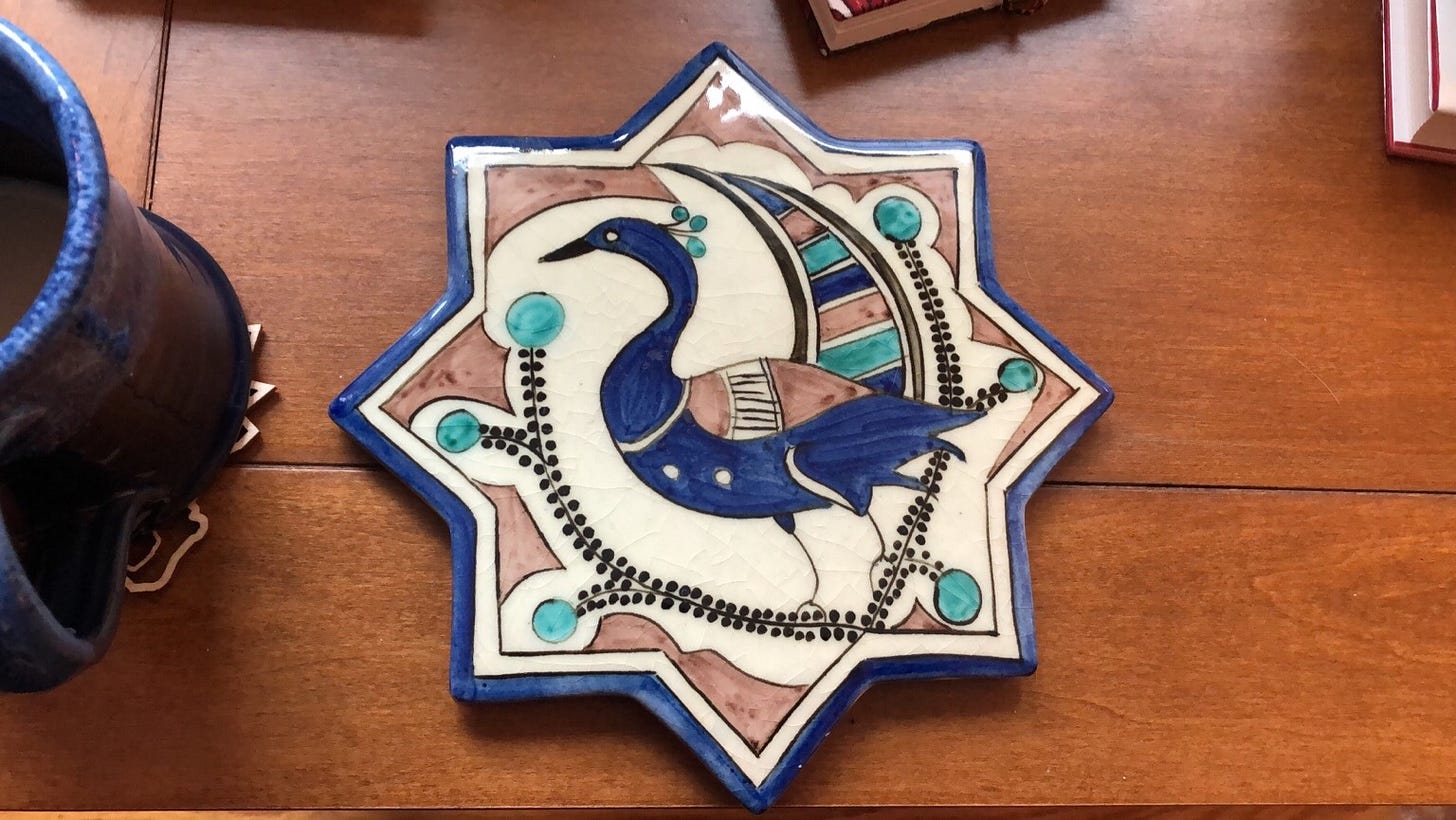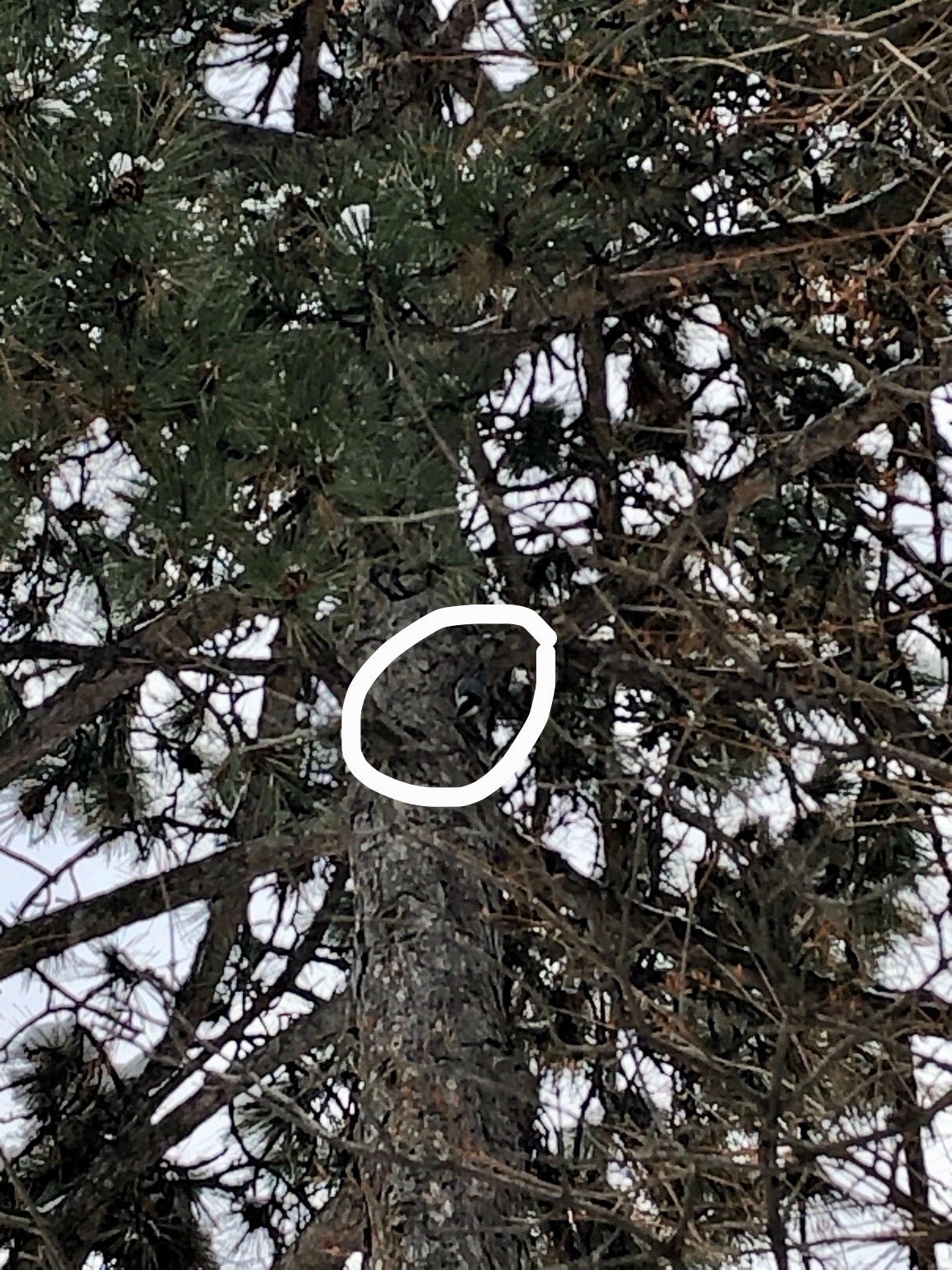New Year’s Eve has never been a particularly big deal in my households. Christmas is a vast undertaking, thick with food and extended family, loud and warm — but New Year’s Eve we spend indoors, sometimes with friends and board games, other times with movies and books. It’s a time to recover from holiday feasting and gift-giving — quiet, understated. We do usually count down the last ten seconds before midnight; if we’re still awake, we try to be the first person to say “Bistraynti aleiki!” or “Bistraynti aleik!”, a difficult-to-translate phrase of uncertain origin that sort of means “I put a gift on you!” with the paradoxical meaning of having won a prize by so doing.
I accumulate other people’s New Year’s Eve traditions like a magpie lining a nest. Each of them always feels enormously, but fleetingly, important. Sweep out the past year, but don’t clean on New Year’s Day, lest you sweep away the coming year’s fortune; begin as you mean to go on; eat black-eyed peas and collard greens; go first-footing, bringing good luck by the darkness of your hair. Because none of them are mine, they feel like gifts to be cherished and a kind of divination, too, a springboard for storytelling, for spelling out the coming year.
In the last hours of 2019, a dear friend told me to pay attention to the first bird I would see in the New Year, because it would have special significance.
I love birds. Few things are simultaneously so ubiquitous and so incredible, make me feel so constantly as if I’m in the presence of a miracle. Birds, stars, and the several shapes of water; music, singing. These things and a few others I love with the helplessness that comes of trying always to get the people I care about to notice them, to wonder at them, when they are so common and so constant as to be thought of as annoyances: spike ledges against pigeons, curse the snow, make fun of people who sing earnest and full-throated without the sanction of a stage.
I’ve sometimes thought that if I were to assemble a collection of recent short stories I’d call it The Truth About Owls and Other Strange Birds. Birds find their way into everything of mine: “The Truth About Owls,” obviously, but also geese in “Seasons of Glass and Iron,” a hummingbird in “Madeleine,” the salted birds and the Roc in “The Lonely Sea in the Sky,” a title’s worth in “A Tale of Ash in Seven Birds.” My very first published story was called “The Crow’s Caw,” the one after it was called “Sparrow and Egg.” I was surprised and delighted when Greg Stadnyk sifted through thirty-six thousand words of elaborate prose to land on a red bird and a blue bird to represent This Is How You Lose the Time War to the world — nothing felt more right.
I live in an apartment in Ottawa’s Centretown. I don’t have a yard, or bird feeders. Sometimes giant crows swoop and sway into the trees I can see from my window, prompting the most amazing murder-chirps from my cats, but I didn’t have high hopes of them, though I watched for them dutifully. I thought to myself, jokingly, that if I saw no living birds there was always at least this gift from my friend Claire.

But complacency didn’t sit well with me. So in the late morning on the first day of the New Year, I went out out to find my bird.
It was a beautiful day, a white sky slowly sifting snow into the kind of temperate winter that smells of wet cold but doesn’t pinch the skin. I walked towards a park, first, crows still on my mind, remembering vast hosts of them crowding one specific tree. I saw none. A helicopter brazened its way through the quiet, and as I looked up I thought about bird / plane / Superman jokes.
I found myself looking, with great deliberateness, everywhere, trying to firm myself against any kind of disappointment in common birds. I knew the hedges were usually full of sparrows, but heard and saw none. I expected to see or hear pigeons, crows. It was most likely, and what would that mean: that I lived in a city? That 2020 would be a year in which I would continue to live in a city, working hard, my colours drab, usual, but no impediment to flight?
As I walked, I tried to be honest with myself about what I wanted, what I was looking for. I thought, with sudden and profound clarity, that I wanted to be both surprised and affirmed. It’s the reason all those Instagram filters that tell you what Pokémon or Pixar character or font you are are so popular, the reason personality quizzes flourished on Livejournal and before that. We know who we are, broadly speaking, but we’d all love the gift of a new self that feels more, that tells us a true secret about ourselves, one that we’re proud and delighted to share. There’s a kind of divination in that, too: you know who you are, but here’s who you could be, the seeds of that self already rooting in you, sprouting.
I started walking towards water.
Surprised and affirmed, I thought, as I approached bare trees with dark shapes in them that resolved into squirrels; surprised and affirmed, I thought, as I refused to look away from trees and telephone wires, but braced myself the while against the possibility of disappointment, against excited potential settling into diminished certainty.
As I approached the Rideau canal, I finally heard birds — high-pitched, squeaky, sounding like needles made of electricity — but couldn’t see them in the thick dark boughs of mature evergreens lining that bit of street. I’m not great at identifying birds by their call, and thought, well, probably sparrows, but I should try to see them, shouldn’t I, make sure — and as I looked up into the height of the tree and the white page of sky, a single solitary pigeon flew above me, all black outline, in perfect silence.
…OK, I thought, I’ve seen a bird. It’s a pigeon after all. I was, for all my stern self-admonitions, disappointed. I’d once seen a barred owl in Confederation Park, Bohemian waxwings eating winter berries a block away from my flat, herons and ducks in the canal or on the river, varieties of woodpecker — all birds that sparked more wonder and joy in me than pigeons.
Then I felt a reflexive defensiveness. Well, why not pigeons. Surely this feeling’s rooted in my childhood longing for jewel-toned eyes, for refusing to see all the warmth and depth and flash and shade brown eyes can have. Pigeons are smart, pigeons adapt, pigeons survive, pigeons are at the heart of the most difficult short story I’m trying to figure out how to tell, that I probably won’t wrote for another year, but maybe this year —
All right, I thought. A pigeon. But what bird made the sounds I heard? I really wanted to know, and I did hear it first.
So I stared up into the trees, walked slowly between them. Whenever I heard the birds — several, certainly — I’d move in their direction, but they’d stop, and I’d hear them elsewhere, and I’d move there. I did this for probably ten minutes, maybe more, just quieting, quieting. And then I found them.
They were black-capped chickadees. Not making their namesake sound, not making the two-note contact call I know so well from the spring. A sound like silver wire twisting around jewels, flashing in the light.
I saw three or four of them huddled against the trunk of a pine, and the sight brought me such sharp, huge joy. And then, deeper still, a shock of wonder: a white-breasted nuthatch in among them, making a low shy buzzing burr of a sound, nasal and soft, as it hopped around.

I’d found my birds. And the happiness I felt — bubbling over into tears, the gift of it, the miracle of it — wasn’t a reprieve from pigeons, but just the company of birds: the sight and sound of them, darting, singing, the shape and flash of them moving in the world. Sounding, and sought. Hidden, and found. The sudden awareness of how long it had been since I’d just stood and stared at birds, for the love of them.
I probably stood there for another ten minutes, thrilling in them, before walking home — thinking how much I wanted to tell my friend of what I’d seen, and then write about it, about New Years and the stories we make for them, the stories we’re always choosing for ourselves but want desperately to be chosen by. I feel like I could make any number of elegant auguries: I could say, I saw three birds that have eaten from my hand; I could say, I refused an easy answer, and found reward in seeking. I could spin these out into significance, build patterns to challenge and excite me for the next twelve months.
But I want more than anything to tell you how I didn’t feel the need to do any of that. I want to tell you that shedding the weight of a borrowed pattern was its own vibrant grace, and an encounter with common winter birds in a green tree beneath a white sky breathing snow was a gift that asked nothing of me, that slaked thirsts I’d forgotten I had.
I was surprised, in the end. I was affirmed. I was given a gift, one that I want to put on you in turn.
Bistraynti aleikoum.



This is beautiful and there thread of birds through your work is a lovely theme. I love my chickadees and nuthatches so much. They are such darling birds.
Thank you, Amal.
I have noticed that since I have started reading your newsletter, I have been passing less and less judgement on 'negative' or 'un-desired' experiences. Witnessing them more as stories in my life.